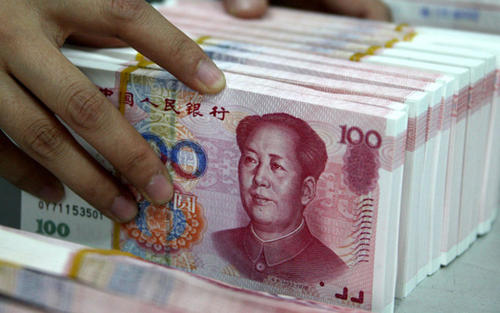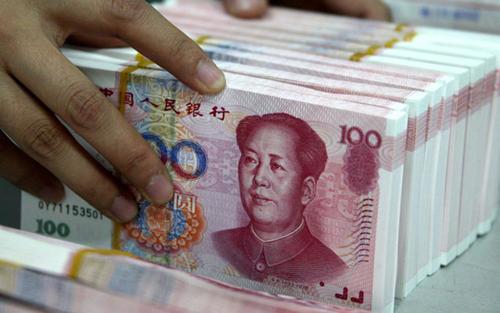
BEIJING, July 31 (Xinhua) -- The central parity rate of the Chinese currency renminbi, or the yuan, has been fluctuating around 7 in the last week. Experts generally believe that the exchange rate of the yuan will remain stable and rise steadily in the second half of the year.
Market participants, both at home and abroad, showed positive expectations for the yuan as a global currency, said the Bank of China (BOC) in its white paper on the renminbi's internationalization in 2019, based on a survey of over 3,000 companies and institutions in 28 countries and regions.
According to the paper, about 80 percent of the surveyed firms will consider seeking funding in renminbi, while nearly 70 percent are planning to raise the use of the currency.
Zhou Maohua, a financial market analyst at China Everbright Bank, noted that investors have gradually weakened the significance of the mark of 7 since the yuan broke the level.
It showed that China's foreign exchange market reform has made new progresses, as exchange rate elasticity significantly enhanced and the market more sensitive in pricing information such as fundamentals, positions and supply and demand, Zhou said.
Multiple factors including economic fundamentals will continue to support the yuan's exchange rates rise steadily, he said.
The newly released statistics by the State Administration of Foreign Exchange (SAFE) showed that, the settlement and sales of foreign exchange by banks recorded a surplus of 78.6 billion yuan in the first half of this year, indicating that enterprises and individuals preferred to hold yuan-denominated assets.
Data also reflected the demand and supply in the market maintained a generally stable equilibrium in the first half, although the surplus contracted since June mainly due to the quarterly dividends distribution in foreign-listed and foreign-invested enterprises, according to Wang Chunying, deputy director and spokeswoman of SAFE.
Experts pointed out at the recently held 2020 International Monetary Forum that China's financial market and renminbi assets showed strong vitality and resilience in the first half of the year, due to the overflow of U.S. dollar liquidity caused by the unlimited supply of liquidity by the Federal Reserve, the declining demand for the dollar due to the shrinking global trade activities, the historical high valuation of U.S. stocks and other assets and the decline in the attractiveness of U.S. dollar assets.
Wang Zhaoxing, former vice chairman of the China Banking and Insurance Regulatory Commission, said there is no need to worry too much about the internationalization of the renminbi, as there is a firewall for basic projects which does not affect normal trading but can prevent and control risks such as speculation.
"This makes the renminbi a hedge asset although it may not be the most convenient currency, but it is the most resilient one and will likely receive long-term profits," said Wang.
Zong Liang, chief researcher of the Bank of China, believed that in the context of global quantitative easing, maintaining stability of the yuan is the basic direction.
While the global economy is slowing down and the global capital flow and foreign trade are unstable, China's monetary policy and fiscal policy maintain stable, so the yuan is likely to keep a steady upward trend, Zong said.
"Global quantitative easing will bring great opportunities to renminbi internationalization, and it will also let the world see that the yuan can be a safe haven currency." Zong added. (Contributed by Han Jie; edited by Yang Qi with Xinhua Silk Road, kateqiyang@xinhua.org)




 A single purchase
A single purchase









